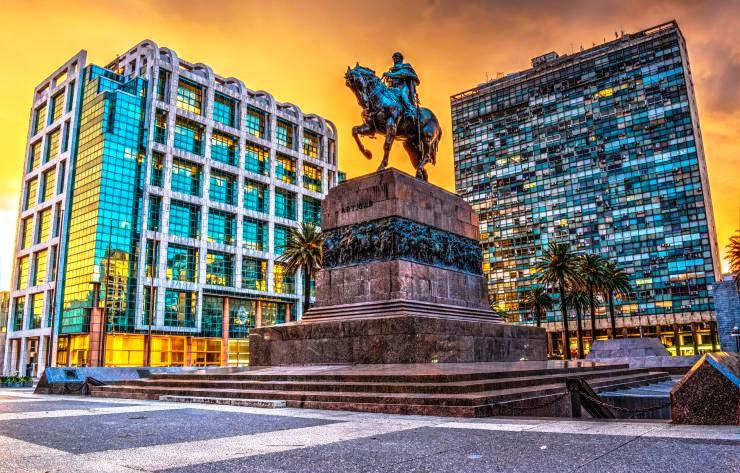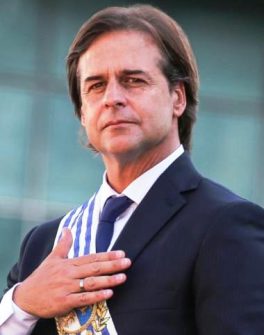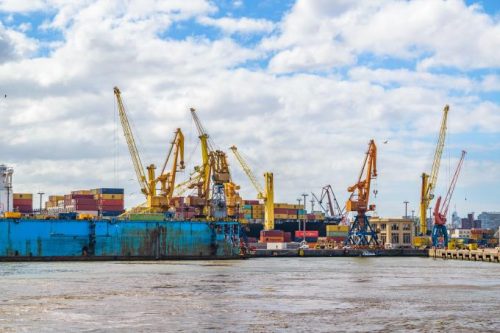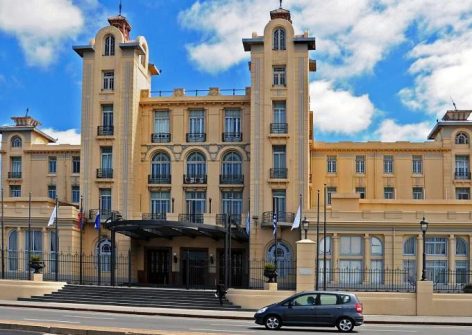More attractive for business.

The affirmation of the current President Luis Alberto Lacalle Pou, leader of the Partido Nacional de Uruguay, put an end to the government cycle of the Frente Amplio whose candidate was defeated with around 30 thousand votes of difference in the Presidential elections of December 2019.
President Lacalle, whose victory is in line with the conservative wave that has affected the entire American continent, has given particular importance to economic issues since his inauguration in March 2020 by implementing the privatization of major companies and public infrastructures. These include the telecommunications company ANTEL, the port of Montevideo and the national oil company ANCAP.
These actions have undoubtedly contributed to making Uruguay a highly attractive country for foreign investments as demonstrated today by the data provided by the Economic Commission for Latin America
and the Caribbean.

Luis Alberto Aparicio Alejandro Lacalle Pou is the 42nd president of Uruguay since 2020. CC BY-SA 4.0/Gastón Britos
The country has, in fact, recorded a surge in investments, with an increase of 155% (3.6 billion in 2021), reaching over nine billion US dollars. They were mostly placed in the renewable energy sector, including the outstanding pioneering 630-million-dollar project of the German company Enertag aimed at exploiting green hydrogen with which, thanks to the help of wind and solar plants, it will be possible produce methanol and then convert it into its derivatives. The Chilean company Highly Innovative Fuels Global has also invested the sum of 4 billion dollars in this sector to build a green hydrogen plant that will allow the decarbonisation of around 150 thousand vehicles per year. Still on an economic level, in order to contain the spreading effects caused by the Pandemic, huge resources have been allocated both in terms of welfare for less well-off families, in the form of family allowances, and for the construction of public infrastructures. Furthermore, a specific bond was created for the financing of major road works, a plan for a 200 million water treatment plant to withdraw water from the Río de la Plata and the concession of five airports in the country, Rivera, Salto, Carmelo, Durazno and Cerro Largo.
The creation of the brand-new infrastructure has made the country attractive to US technological giants including Google which has built a data centre in the department of Canelones and the mammoth 13,500 km Firmina submarine cable, which the US multinational is installing in the city of Punta dell’Este for a direct connection between the United States and Uruguay, Argentina and Brazil.
Furthermore, Uruguay is also very attractive for Fin Tech, recording the presence of as many as 40 companies specialized in the open banking, crypto and blockchain sector, including Paganza and the Argentine Ripio.
If in the opinion of some analysts, this has certainly led to an objective improvement in economic growth, the data reported by the Uruguayan Institute of Statistics updated to 2023 show us that the poverty rate is at 9.8 per cent and families at below the poverty line represent 6.7 per cent of the population, while the indigence rate has reached 0.3 per cent.

Sunny day scene at Port of Montevideo. The creation of new infrastructure has made the country more attractive for business. 123rf
It should, however, be added that government activity, in the economic field, has been greatly affected by the effects of the pandemic, international crises, the Argentine crisis, the increase in prices and the scarcity of drinking water that hit the country in 2023, despite the huge water resources at its disposal. The water crisis is in fact due to the waves of severe drought that this area of the American continent now has to deal with, the economic and geopolitical consequences of which are increasingly pressing. In fact, upon closer inspection, the agri-food sector recorded a loss of more than 2 billion dollars in 2023. Furthermore, the Argentine economic crisis and the enormous price differential that resulted caused the flight of Uruguayan consumers with a notable impact on the country’s economy which the government must deal with considering that in 2023 this phenomenon caused the exit of approximately one billion euros (approximately 1% of Uruguayan GDP) from the national territory.

Montevideo. Headquarters of Mercosur. Recently Uruguay has showed its willingness to sign bilateral trade agreements with non-Mercosur countries. CC BY-SA 3.0/ Andrés Franchi Ugart
From an international perspective, Lacalle has decided to take a completely different posture compared to that of his predecessors, aiming towards economic opening with third countries and solidifying extra-regional relations. This new positioning was immediately perceived as problematic within MERCOSUR. In particular, during the 61st summit of the organization held in Montevideo, Uruguay assertively showed its willingness to sign bilateral trade agreements with non-Mercosur countries and blocs without the approval of the other member countries. This position is not looked upon favourably by the organisation’s major shareholders, Brazil and Argentina, as it would violate the organisation’s rules. However, the real concern of the two major players lies in the desire on the Uruguayan side to reach a free trade agreement with China and Turkey and to join the Trans-Pacific Partnership Agreement (CPTPP).
In the meantime, the country is preparing for the next presidential elections which will be held on 27 October this year with the parties intent on supporting the electoral campaign and facing the primary round with the left of the Frente Amplio, currently in the lead in the polls, that he will try to return to power by taking advantage of the impossibility of the re-election of the current President of the National Party Luis Lacalle Pou. (Open Photo: Sunset at Plaza Independencia, Montevideo.123rf)
(F.R.)



